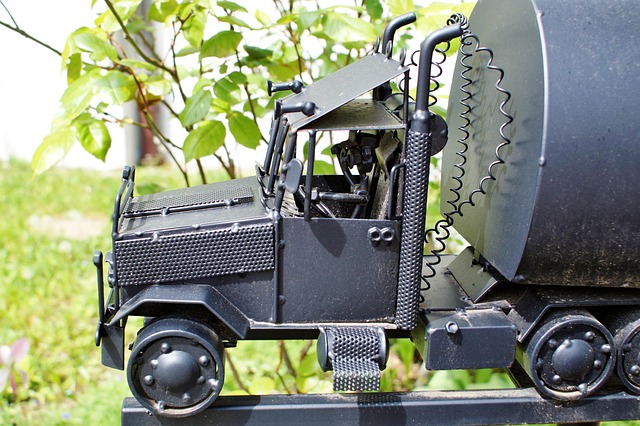Startup trucking businesses require specialized SR22 policies to balance cost-effectiveness with comprehensive liability coverage, adhering to federal MCSA regulations. These policies should be tailored to individual driver needs (personal liability, property damage, medical expenses) and more complex business requirements (fleet liability, cargo insurance, worker's compensation) based on fleet size, vehicle types, and risk management strategies. Regular policy reviews and negotiations optimize rates while ensuring protection, fostering sustainable growth in a competitive trucking market.
In the dynamic world of trucking, understanding and customizing SR22 policies is crucial for both individual drivers and businesses. This comprehensive guide delves into the intricacies of SR22 policies, their vital role in ensuring compliance with Federal Motor Carrier Safety Administration (FMCSA) regulations, and how to tailor them to meet unique startup trucking needs. From identifying key factors to optimizing coverage and maximizing value, this article equips you with essential insights for navigating the landscape of startup trucking SR22 policies.
Understanding SR22 Policies and Their Purpose in Trucking

SR22 policies are a crucial aspect of the insurance landscape for startups in the trucking industry. These specific policies are designed to meet the unique requirements of truckers and ensure they comply with federal Motor Carrier Safety Administration (MCSA) regulations. In startup trucking, where every expense is carefully considered, understanding SR22 and their purpose is essential.
SR22 policies provide liability coverage for commercial vehicles, protecting against potential damages or losses incurred during operations. This includes coverage for property damage, personal injury, and legal fees resulting from accidents. For startups, customizing these policies allows them to tailor protection to their specific business model, fleet size, and risk management strategies. By understanding the purpose and options available, trucking businesses can navigate the insurance landscape effectively and ensure they are prepared for any unforeseen challenges on the road.
Factors to Consider When Customizing SR22 for Startups

When customizing SR22 policies for startups in the trucking industry, several key factors come into play. First and foremost, understanding the unique operational needs and risks associated with startup trucking operations is essential. Startups often face dynamic market conditions, rapid growth, and evolving regulatory landscapes, all of which can impact their insurance requirements. Therefore, policy customization should account for these variables to ensure adequate coverage.
Additionally, startups typically have limited financial resources, making cost-effectiveness a primary concern. Insurers can address this by offering flexible pricing models, discount programs tailored to new businesses, and options for progressive coverage as the startup scales. Accessing specialized trucking insurance expertise can also aid in navigating complex liability issues and identifying areas where customized SR22 policies can provide targeted protection, enhancing risk management for young trucking enterprises.
Tailoring Coverage: Individual Drivers vs. Business Operations

When customizing SR22 policies for startup truckers, it’s crucial to differentiate between individual drivers and business operations. For solo operators, coverage should focus on personal liability, property damage, and medical expenses. These are essential protections against potential accidents or incidents that could result in significant financial burdens.
For startup trucking businesses, however, the needs are more complex. SR22 policies for businesses should include not only the driver’s personal protections but also liability coverage for the entire fleet, cargo insurance, and worker’s compensation. These comprehensive measures ensure that the business is shielded from financial ruin in the event of multiple accidents or claims involving its operations and employees.
Maximizing Value: Tips for Optimizing Your SR22 Policy

Maximizing Value: Tips for Optimizing Your SR22 Policy
For startups in the trucking industry, obtaining and customizing SR22 policies is a strategic move to protect their assets and ensure smooth operations. The key lies in understanding your specific needs and aligning them with the policy’s coverage. Focus on comprehensive protection, including liability, collision, and cargo insurance. Reviewing and negotiating policy terms can help you secure better rates without compromising essential coverage.
Consider factors like fleet size, vehicle types, and driver experience to tailor your SR22 policies accordingly. Stay updated on industry regulations and adjust your policy to meet changing requirements. By being proactive in managing your insurance, startups can save costs, maintain compliance, and safeguard their future in the competitive trucking market.
Customizing SR22 policies is key to ensuring optimal protection for both individual drivers and business operations in the trucking industry. By understanding the unique needs of startups and weighing factors such as driver experience, fleet size, and operational scope, carriers can tailor coverage that maximizes value. For startup truckers, this means balancing affordability with comprehensive protection, enabling them to navigate the road ahead with confidence. Optimizing your SR22 policy is a strategic step towards mitigating risks and fostering sustainable growth in the dynamic world of trucking.
